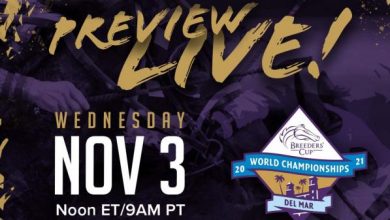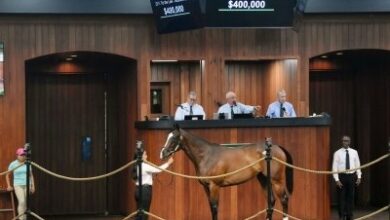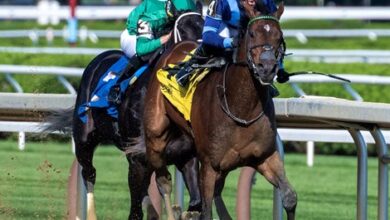HISA Recommends Further Restrictions on Injections

Among the anti-doping and medication control updates proposed Nov. 13 by the Horseracing Integrity and Safety Authority to the Federal Trade Commission is a rule that calls for a one-year ban of covered persons who inject a horse, or attempt to administer an injection, during the “race period.”
The race period is the time commencing 48 hours prior to post-time of a race or any vets’ list workout in which the covered horse participates—whether or not the covered horse actually starts.
The updated rule reads: “The injection or attempted injection of any substance to any site of a covered horse’s body during the race period is prohibited, unless specifically permitted under the prohibited list; or administered or authorized by a regulatory veterinarian or test barn veterinarian to provide medical care to a covered horse as a result of an injury sustained (or other adverse health event) during the race period (or by another veterinarian in circumstances where there is an imminent risk to horse welfare, health, or safety), provided that the covered horse does not subsequently participate in the covered horse race during that race period.”
Besides being subject to a one-year ban, violators also would face fines of $15,000 or up to 15% of the total purse (whichever is greater), as well as payment of some or all of the adjudication costs.
HISA submitted the proposed rule changes to the FTC for review Monday. The red-lined documents recommend changes in general provisions, protocol, the prohibited list, testing and investigation standards, laboratory standards, and arbitration rules.
Under protocol, rule updates give specifics to positive findings in horses that likely are related to contamination linked to the horse’s human caregivers. The following banned substances are considered to be human substances of abuse: cocaine/benzoylecognine, methamphetamine, methaqualone, methylenedioxyamphetamine (MDA), methylenedioxyethylamphetamine (MDEA), methylenedioxymethylamphetamine (MDMA), oxycodone, phencyclidine (PCP); and tetrahydrocannabinol (THC).

Findings of these substances in the horse still call for significant sanctions. A first finding would see a disqualification, a 60-day ban, and up to a $5,000 fine (or fine up to 5% of the purse, whichever is greater).
Rules also have been updated on provisional suspensions, specifically in regards to split sample results.
Other recommended changes under protocol include an update to protections of regulatory staff. While a previous rule noted that covered persons could be sanctioned for offensive conduct toward sample collection personnel, it has been updated to include anyone involved in anti-doping or medication control efforts.
Another update makes it clear that covered persons may not participate in races at “bush” tracks. The update makes it a violation to “participate in the racing of covered horses at a facility or location that has not been licensed or approved by the applicable state racing commission.”
The updated rules also add some clarity to sample collection policies and requirements of a trainer or a representative of the barn being present for those events.
Another update addresses when a race that involves a potential anti-doping violation (or a controlled medication violation that calls for a disqualification) becomes official. The mostly updated language reads, “Until the point in time that an anti-doping rule violation is finally adjudicated by the issuance of a final decision of the arbitral body under Rule 7320, an issuance of a final decision by the agency, or the responsible person’s acceptance of consequences, the eligibility status of the winner and the runner-up of a covered horserace is unaffected, i.e., the winner remains the winner of the race, and the runner-up remains the runner-up, for purposes of the covered horse’s conditions for eligibility in entering another covered horserace. If the final adjudication of the matter requires that the winner of the covered horse race be disqualified, the disqualified horse shall no longer be considered the winner (and in a maiden race, shall remain a maiden) until it has won another covered horse race, and the runner-up shall be considered the winner for purposes of its future condition eligibility.”




